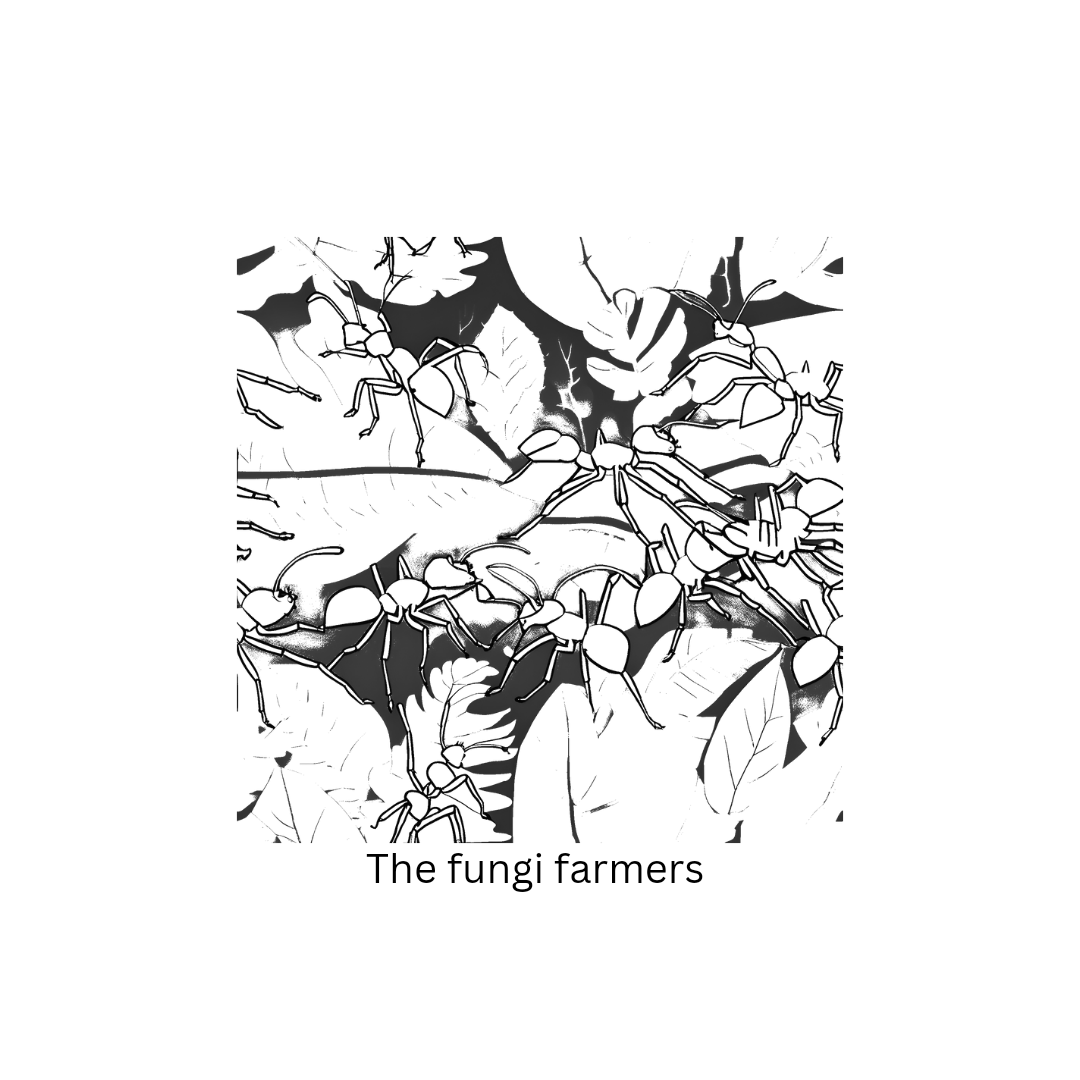Leafcutter ants are among nature’s most skilled cultivators. These remarkable insects, native to tropical rainforests in Central and South America, have a unique symbiotic relationship with fungus, making them a key player in the ecosystem. In this article, we’ll explore the incredible ways in which leafcutter ants farm fungus and how this relationship has evolved over millions of years.
1. What Are Leafcutter Ants?
Leafcutter ants, scientifically known as Atta and Acromyrmex species, are a type of ant that cuts and harvests leaves, not for direct consumption, but to cultivate fungus. These ants use their sharp mandibles to cut pieces of leaves, flowers, and other plant materials, which they then carry back to their underground colonies.
2. How Do Leafcutter Ants Use Leaves to Grow Fungus?
Unlike many other species that directly consume the plant matter they collect, leafcutter ants use the leaves as a substrate to grow a specific type of fungus (Leucocoprinus gongylophorus). Once the ants bring the leaves back to their nests, they chew them into smaller pieces and place them in their fungus gardens. The fungus grows on the decomposing plant matter, and it becomes the ants’ primary food source.
3. A Symbiotic Relationship
The relationship between leafcutter ants and their cultivated fungus is a prime example of symbiosis in nature. The fungus depends on the ants for plant material and protection, while the ants rely on the fungus as their sole food source. Without one, the other cannot survive. This intricate mutualistic relationship is a perfect display of coevolution, where both species have evolved to benefit from each other over millions of years.
4. The Role of Fungus in Ant Colonies
In a leafcutter ant colony, the queen ant lays eggs while worker ants perform various tasks, including foraging, leaf cutting, and tending to the fungus garden. The fungus provides a sustainable food source for the entire colony, including the larvae, which are fed a steady diet of fungus. Interestingly, different species of leafcutter ants cultivate slightly different strains of fungus, but they all share the same general behavior of fungus farming.
5. Solving the Contamination Problem
Maintaining a healthy fungus garden is crucial for the survival of leafcutter ant colonies. Contamination by unwanted fungi or bacteria can threaten the entire colony. To combat this issue, leafcutter ants employ several strategies:
Antibiotic Production: Worker ants produce antibiotics to inhibit the growth of harmful microorganisms that could infect the fungus garden.
Selective Foraging: Ants are meticulous about the type of plant material they collect, ensuring that it’s free from contaminants.
Garden Maintenance: Ants regularly clean their fungus gardens, removing debris and any signs of contamination.
These strategies help keep the fungus healthy and ensure the colony’s survival.
6. Why Is This Relationship Important for Ecosystems?
Leafcutter ants play a critical role in their ecosystems by decomposing large amounts of plant material. While they don’t eat the leaves directly, they help break down organic matter, which contributes to nutrient cycling in tropical forests. This process helps maintain soil fertility, supporting plant growth and biodiversity.
7. Evolutionary History: Millions of Years of Fungus Farming
Leafcutter ants have been farming fungus for over 50 million years, making them one of the world’s first and most successful agricultural species. Scientists believe that this farming behavior evolved as a survival strategy in response to changing environmental conditions, such as deforestation or the spread of disease. Over time, the ants and their fungus became so dependent on each other that neither can live without the other.
Conclusion: Nature’s Master Farmers
The relationship between leafcutter ants and fungus showcases the complex and fascinating ways that organisms can interact in nature. These ants are not just incredible for their precision in cutting leaves but also for their ingenuity in cultivating their own food source. Through this symbiotic relationship, leafcutter ants play an essential role in maintaining the balance of tropical ecosystems, making them one of nature’s most important mini-farmers.




